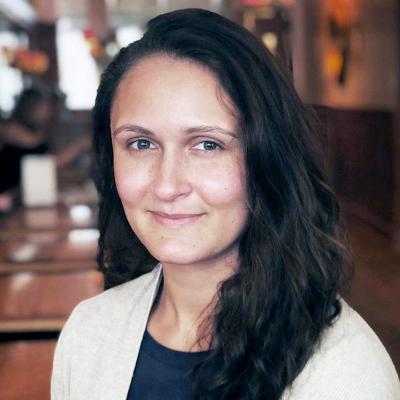
Nina Benegas works as a teacher at Alliance Marc and Eva Stern Math and Science School. In her role, she teaches 9th grade English Language Arts, covering critical reading, argumentative and narrative writing, and information literacy; 11th/12th grade Creative Writing, which includes journalism, performance poetry, and playwriting; and serves as English Department chair and professional development team leader. Nina also mentors new teachers as an induction coach and contributed to the district's curricular revision as a member of the Diversity, Equity, and Inclusion (DEI) ELA Curriculum Pilot Cohort. In addition, Nina facilitates mental health professional development at district-wide New Teacher Orientation.
The year Nina applied to LMU, she attended a professional development training for teachers who wanted to better support their students' mental health in times of crisis. The icebreaker question was, "share a time when you've struggled with your mental health at work.” The group never got to the rest of the training because by the time participants finished sharing their stories, the time for the training was almost over. It was clear to Nina that the trauma teachers experienced was not being adequately addressed and she started researching doctoral programs that same week to find a way to help.
Nina’s dissertation study involved a qualitative interview protocol investigating high school teachers’ use of emotional labor strategies to address novel COVID-19 pandemic-related occupational stressors. Her findings led her to suggest a model which describes teachers’ expanded job demands as contextual variables affecting emotional labor strategies’ ability to mitigate feelings of burnout and occupational stress.
Nina thinks that everyone enters the Ed.D. Program with a certain level of curiosity, but what she took away from the course of study was the skill of channeling that curiosity into intentional problem-solving. The LMU Ed.D. Program expanded her impact on any professional environment in which she finds herself because she knows what questions to ask in order to reveal systemic problems of inequity and social injustice. Whether she stays in her current position or pursues another career path post-graduation, she has the skills to be a change agent wherever she goes.